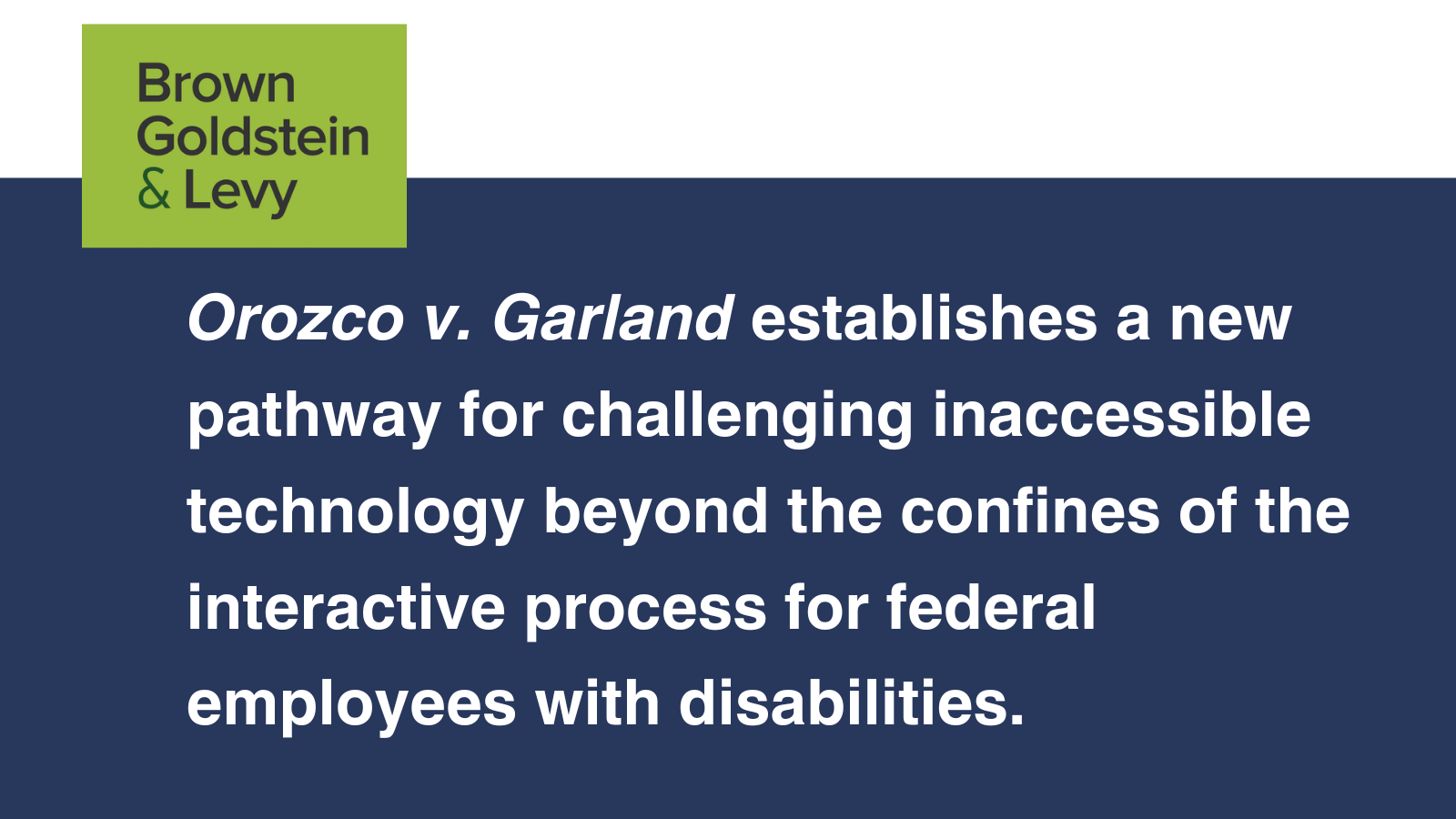By Jessie Weber
A blind worker, who depends on display screen entry software program to transform data that seems visually on pc, pill, or telephone screens into synthesized speech or braille, begins a brand new job solely to be taught that her employer requires staff to make use of software program that’s not correctly coded to work with display screen entry software program. As a substitute of studying the contents of her display screen, this worker’s display screen reader merely reads “clean, clean, clean”—rendering it unimaginable for her to do her job. That is the truth for a lot of blind staff in our more and more digital world, in addition to different staff with disabilities who require use of display screen entry software program (for instance, people with dyslexia or dexterity impairments). Whereas know-how that’s designed to be digitally accessible opens doorways for workers who depend on display screen entry software program and permits them to work productively proper alongside their colleagues with out disabilities, inaccessible know-how shuts these staff out.
Though Title I of the Individuals with Disabilities Act (“ADA”) and Sections 501 and 504 of the Rehabilitation Act present authorized recourse for a lot of staff with disabilities, the cheap lodging/interactive course of framework that’s central to those legal guidelines generally is a useless finish for a lot of staff. The federal incapacity rights legal guidelines governing employment usually require an worker with a incapacity to first request an inexpensive lodging, then the worker and employer should basically negotiate to find out what is affordable and wouldn’t impose an undue hardship on the employer. In conditions the place employers have already procured and rolled out inaccessible know-how, this interactive course of typically proves insufficient. Employers might not take into account the accessibility of know-how they’re procuring till an worker with a incapacity requests an inexpensive lodging, at which level, with the inaccessible know-how already in use, remedying or changing that know-how with an accessible various may be fairly costly, main employers to say an undue hardship. When the issue stems from procurement selections missing consideration of accessibility, the interactive course of can provide little to staff with disabilities negatively impacted by these selections. In fact, there are arguments to be made that employers violate the ADA by procuring inaccessible know-how for workers (resembling when the inaccessible know-how finally ends up appearing like a qualification customary or choice standards that screens out people with disabilities, see 42 U.S.C. § 12112(b)(6)), however these arguments haven’t been examined in court docket, and “cheap lodging” has develop into synonymous with incapacity employment legislation for a lot of courts.
For federal staff, nonetheless, there’s one other instrument for difficult the usage of inaccessible know-how within the office: Part 508 of the Rehabilitation Act. Part 508 requires federal companies to develop, procure, keep, and use solely accessible digital and knowledge know-how—each for the general public and for inner use by federal staff. Till lately, some thought that the one technique of implementing Part 508 was by submitting an inner administrative criticism—a course of that may drag on for years, typically going nowhere. For instance, when blind FBI intelligence analyst Jahinnslerth Orozco filed an administrative criticism beneath Part 508 towards his company for its use of inaccessible software program, the company routed his criticism by way of the employee-discrimination course of earlier than finally dismissing the declare and directing Mr. Orozco to file it with the executive workplace that handles accessible know-how points, which he had already carried out twice to no avail. See Orozco v. Garland, 60 F.4th 684, 687 (D.C. Cir. 2023). His company thought Mr. Orozco’s combat for an accessible office ought to cease there.
However Mr. Orozco as an alternative filed a federal lawsuit, arguing that the FBI’s procurement and use of inaccessible office software program violated Part 508. The district court docket initially dismissed the case, accepting the federal authorities’s argument that Part 508 doesn’t grant people a non-public proper of motion to implement it. Following Mr. Orozco’s enchantment, nonetheless, the D.C. Circuit held that Part 508 “affords federal staff like Orozco their day in court docket” and reversed and remanded the case. Orozco, 60 F.4th at 692.
Orozco’s readability on Part 508’s personal proper of motion affords federal staff a robust new instrument of their combat for an accessible office: they will problem their companies’ use of inaccessible know-how head on, with out going by way of the interactive course of, they usually can have their claims heard outdoors of their companies, in federal court docket. Federal staff with disabilities can now extra successfully get on the root explanation for their battle with inaccessible know-how—the choice to obtain or develop inaccessible software program within the first place. Orozco will seemingly result in larger enforcement of Part 508, which ought to in flip result in extra accessible federal workplaces. Given the scale and shopping for energy of the federal authorities, Orozco’s affect ought to spill over to the personal sector as properly, as extra builders of office know-how make their merchandise accessible in hopes of acquiring a authorities contract. Within the meantime, federal staff with disabilities and their advocates have one other instrument so as to add to their toolbox for implementing these staff’ civil proper to equal employment alternative.
When you’ve got questions on this matter or consider you’ve been topic to discrimination within the office, please name us at 410-962-1030 or contact us immediately for a session.
